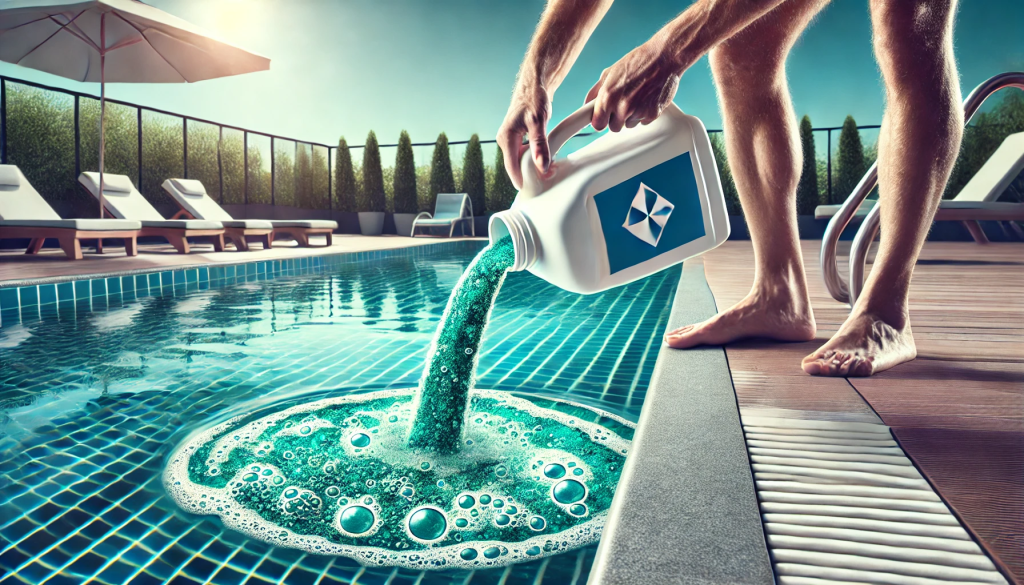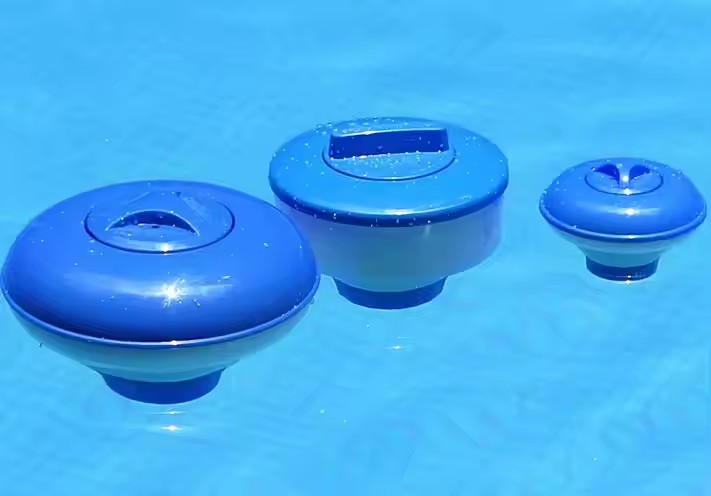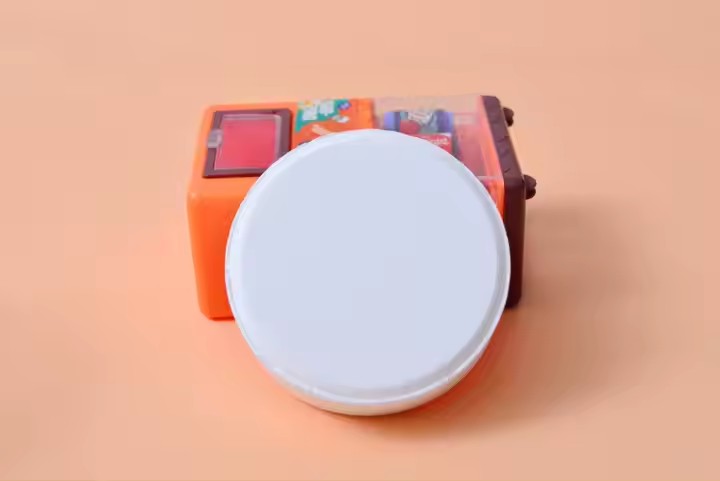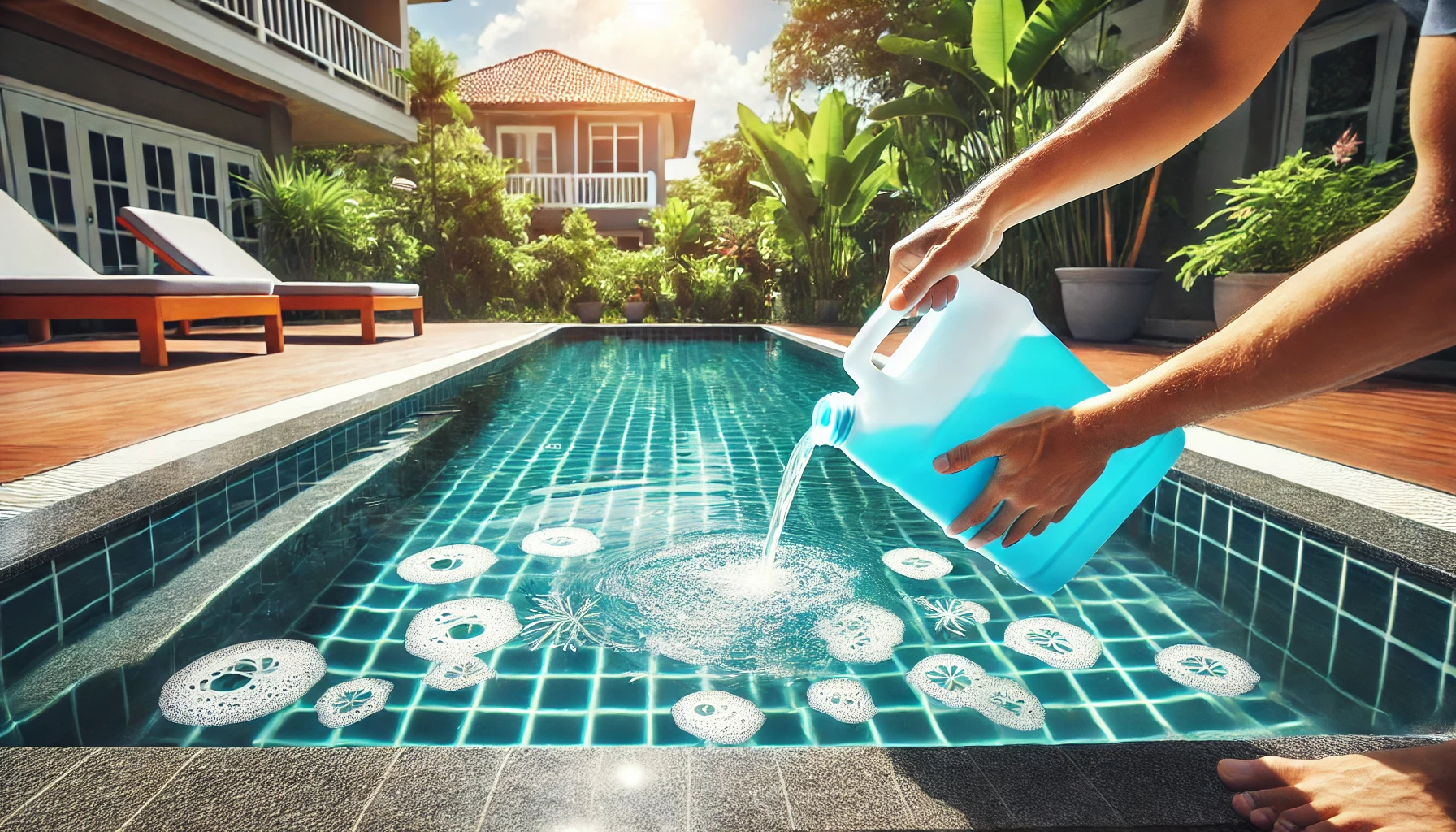Maintaining a clean and healthy pool is a priority for every pool owner. One of the most common challenges pool owners face is the growth of algae. Algae can turn your sparkling pool into a green, slimy mess if not treated properly. This is where algaecide comes in. Algaecide is a chemical solution designed to prevent and treat algae growth, keeping your pool water clear and inviting.

Types of Algaecide for Pools
When selecting a pool algaecide, it’s important to know that there are different types, each designed to tackle specific types of algae. Understanding these differences will help you choose the best algaecide for your pool.
1. Copper-Based Algaecides
Copper-based algaecides are among the most common and effective products for controlling algae growth. These products contain copper salts, which are highly effective at killing algae by disrupting their cell membranes. Copper-based algaecides can be used as a preventative measure or to treat existing algae problems. However, they require careful use, as too much copper can stain pool surfaces, particularly in pools with vinyl liners.
While they are effective, you must ensure that the copper level in your pool stays within a safe range. Too much copper can cause staining or discolouration of pool surfaces, so always follow the manufacturer’s guidelines carefully.
2. Polymeric Algaecides
Polymeric algaecides are often referred to as “non-metallic” algaecides. They are considered a safer option for pools with vinyl liners or other sensitive surfaces. These products create a protective film on the pool’s surface, which prevents algae from adhering to walls and floors. Polymeric algaecides are also effective in preventing a wide range of algae types, including green, black, and mustard algae.
These algaecides are gentle on pool surfaces and are less likely to cause staining or damage. They are an excellent choice for long-term maintenance of your pool, as they not only kill existing algae but also prevent future growth.
3. Quaternary Ammonium Compounds (Quat-Based Algaecides)
Quat-based algaecides are chemical products that work by breaking down the cell walls of algae, leading to their destruction. These algaecides are effective against green algae and are commonly used in residential pools. They are safe to use with other pool chemicals, and their non-foaming nature makes them easy to apply.
While effective against green algae, quat-based algaecides are less effective against mustard algae or black algae. They are best suited for general maintenance and can be used as part of your regular pool cleaning routine.
4. Chlorine-Based Algaecides
Chlorine-based algaecides work by using chlorine in a more concentrated form to kill algae. While chlorine is a standard disinfectant for pools, in some cases, additional chlorine may be needed to effectively address algae issues. Chlorine-based algaecides are ideal for pools that have experienced significant algae outbreaks or when dealing with particularly stubborn algae species like black algae.
However, these products can sometimes cause an imbalance in pool chemistry, so it’s important to monitor the pool’s chlorine and pH levels after treatment.
How to Choose the Best Algaecide for Your Pool
Choosing the best algaecide for your pool depends on several factors, including the type of algae present, the type of pool you have, and your pool’s overall chemistry. Here are some factors to consider when selecting the best algaecide for your needs:
1. Type of Algae in Your Pool
Before selecting an algaecide, it’s important to identify the type of algae in your pool. Algae can be classified into several categories, including:
Green Algae: The most common type, which causes pool water to appear murky or green.
Black Algae: This type of algae appears as black spots on pool surfaces and is particularly stubborn.
Mustard Algae: Yellowish-brown algae that can accumulate in shady areas of your pool.
Different types of algaecide target different types of algae, so knowing what you’re dealing with will help you choose the best algaecide for the job.
2. Pool Type and Material
Consider the material of your pool before choosing an algaecide. If you have a vinyl liner, for example, you might want to avoid copper-based algaecides since they can cause staining. If your pool is made of plaster, fiberglass, or another non-porous material, you have more flexibility in your choice of algaecide.
3. Frequency of Use
Some pool algaecides are designed for long-term use and can be applied every few weeks to prevent algae growth. Others are meant for occasional or emergency use to treat an existing algae problem. Determine whether you need a preventative algaecide for routine maintenance or something stronger for a more severe algae bloom.
4. Pool Size
The size of your pool will also affect the type of algaecide you choose. Some products are better suited for small residential pools, while others are more effective in large commercial pools. Always check the product label for the recommended dosage based on your pool’s size.
Conclusion
Choosing the right algaecide for your pool is essential for keeping your pool clean, clear, and algae-free. Whether you’re dealing with green, black, or mustard algae, there is an algaecide suited to your needs. By understanding the different types of pool algaecide, considering the specific needs of your pool, and following the manufacturer’s instructions, you can keep your pool in top condition and ensure a safe, enjoyable swimming experience for all. Make sure to choose the best algaecide for your pool’s unique requirements, and you’ll have crystal-clear water all year long.


